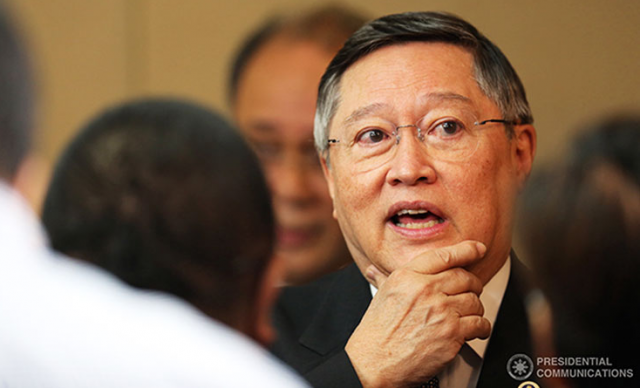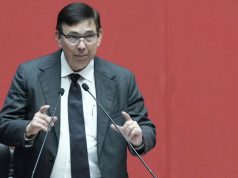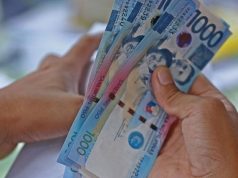MANILA – Congress’ resumption of sessions on January 15 will likely be greeted with a big push from Malacañang: the second of a series of reforms meant to overhaul the Philippines’ two-decades old tax law.
The Department of Finance gave Jan. 15 as the date it set for the submission of package two of the Comprehensive Tax Reform Program (CTRP).
Nomura Global Research, in its Jan. 4 research note, bets that tranche will touch corporate taxes. “In our view the next package likely to be tabled this year is on corporate income tax cuts, which are again complemented by revenue-raising measures, particularly the rationalization of fiscal incentives,” Nomura analysts wrote.
“We expect these will also continue to boost the economic outlook if passed, helping competitiveness and improving prospects of FDI (foreign direct investments) further.”
A cut in corporate income taxes will be a follow-through to Republic Act 10963, which trimmed personal income taxes while raising the levy on cars, oil, tobacco, and coal among others. That law, signed by President Rodrigo R. Duterte just last December, took effect on Jan. 1.
The President on Dec. 19 ordered the DoF to “immediately submit to Congress” the second package as he signed the first set of tax reforms.
“We are going to submit to Congress the package two of the CTRP in January 2018,” Finance Secretary Carlos G. Dominguez III said after a Dec. 22, 2017 Development Budget Coordination Council briefing.
Asked for a date, Mr. Dominguez said: “on January 15.”
Congress is on a month-long break that ends on Jan. 14, but Senate President Aquilino L. Pimentel III over the weekend already outlined which bills are tabled for discussion when lawmakers return to work on Monday next — changing the 1987 Constitution for federalism, the Bangsamoro Basic Law and death penalty. (See related story on S1/10)
Also counted among the Senate’s legislative priorities this year are those pertaining to “endo (end of contract), occupational safety, BSP (Bangko Sentral ng Pilipinas) charter, anti-terror, and SEC (Securities and Exchange Commission) reforms,” Mr. Pimentel said in a mobile phone reply on Sunday.
Under the Constitution, all tax measures must originate from the House of Representatives. The committee on ways and means has yet to reply to queries on how soon the second of five packages under the CTRP will be dealt with assuming that it is filed on Jan. 15. House majority leader Rodolfo C. Farinas said House lawmakers will take the cue from the Finance department, saying in a mobile phone reply that “we have not even received it [the proposed legislation.]”
Although the Finance department is still finalizing the draft’s wording, the agency said earlier that it wants to cut the corporate income tax rate to 25%, from 30% currently, in order to encourage firms to spend more and to improve the country’s attractiveness to foreign investors.
The proposal would also rationalize some fiscal incentives in order to plug revenue leaks. Mr. Dominguez said earlier that the retention of tax holidays will be performance-based.
He said in a statement on Sunday that the next tax package will likely be “revenue-neutral.”
Finance Undersecretary Karl Kendrick T. Chua had said in September last year that the package will involve foregoing P500 billion as a result of lower corporate taxes, but will be compensated by the same amount from the withdrawal of tax perks.
Business groups earlier said that the second package will be closely watched to see whether the corporate income taxes would be competitive when compared with the rest of Southeast Asia and which fiscal incentives would be retained. — with reports from E. J. C. Tubayan, M. N. R. Dela Cruzand A.L. Balinbin







